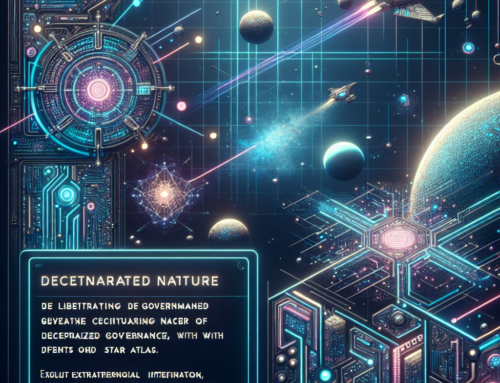Star Atlas: Navigating Political Economy Insights

Star Atlas: Navigating Political Economy Insights
At Titan Analytics, we aim to dissect the compelling world of Star Atlas through the lens of political economy. For those unfamiliar, political economy merges economics, law, and politics to understand how institutions develop and affect social behavior. Understanding this concept can enhance your appreciation of the dynamics at play in the Star Atlas universe.
The Framework of Star Atlas
Star Atlas is a decentralized space exploration and strategy game built on the Solana blockchain. Within this virtual cosmos, players engage in governance, resource management, and interactions that are deeply influenced by the game’s political economy. Like any economic system, Star Atlas has its players, stakeholders, and power structures.
In Star Atlas, you can choose to play various roles – from traders to fighters to explorers. Each role affects the overall game’s economy, which introduces a myriad of political implications. Just as nations have economies influenced by their political environments, the factions in Star Atlas must navigate conflicts, alliances, and resource distribution.
Resource Management and Wealth Distribution
Economics is often about the allocation of limited resources, and in Star Atlas, this theme is prevalent. Players mine resources, trade goods, and manage their ships and fleets. The economic strategies employed to maximize efficiency reflect broader economic theories:
- Scarcity: Resources in Star Atlas are finite. Players must make strategic decisions about what to mine, trade, or use to govern their territories.
- Supply and Demand: The value of assets fluctuates with player interest and resource availability. Understanding these market dynamics is crucial for maximizing profits.
- Wealth Redistribution: Players may engage in trade to acquire wealth and influence, mimicking real-world economic policies where wealth distribution can lead to social stability or unrest.
Governance and Political Structures
Star Atlas also involves decentralized governance, which can profoundly affect the game’s political landscape. Governance models, which include voting systems and decision-making frameworks, require players to consider their alliances and the common good. This is where political economy takes on multiple perspectives:
- Collective Decision-Making: Just as governments deliberate on policies, factions in Star Atlas must collaborate or compete to engage in effective governance. The results can be beneficial or detrimental, depending on the players’ willingness to cooperate.
- Power Dynamics: The structure of power within factions highlights the balance between individual ambition and collective responsibility. Players often find themselves navigating a landscape rich with competing interests and ideologies.
The Role of Technology and Innovation
Innovation in Star Atlas isn’t just about better ships or weapons; it’s also about the technological frameworks that underpin economic interactions. The use of blockchain technology for transactions and governance exemplifies how tech innovations can disrupt traditional economies and politics.
The economic implications are vast:
- Transaction Efficiency: Fast and secure transactions enable a fluid economy, enhancing trade opportunities and reducing friction.
- Transparency and Trust: Smart contracts enforce agreements without needing intermediaries, reflecting a significant shift in how trust is managed in economic relationships.
Conclusion
Navigating Star Atlas through the lens of political economy provides rich insights into how the virtual world mirrors real-world dynamics. By understanding the interplay between economics and politics, players can make more informed decisions that enhance both their individual success and the welfare of their factions.
We invite you to deepen your understanding of this fascinating universe by exploring our comprehensive data modules. Check out Titan Analytics Star Atlas data modules or reach out to us directly through our contact page. Happy exploring!




